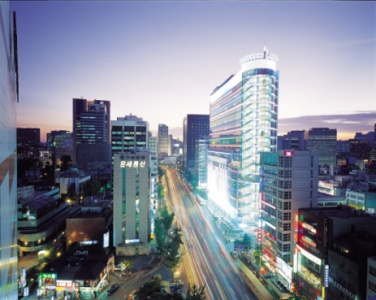Guest post: Martin Ince.
This year’s QS World University Rankings by Subject confirm that South Korean universities are competitive on a world scale. The country has a ranked university in 29 of the 30 subjects assessed, spanning the vast majority of the world’s academic teaching and research.
Philosophy, inevitably a problem area for Asian institutions due to the world status of western philosophy, is the only subject from which Korea is absent. Meanwhile in the newly added ranking for agriculture and forestry, published for the first time this year, Korea already has five top-200 universities.
These subject rankings corroborate the picture given by the overall QS World University Rankings regarding the global status of Korean universities. In the world rankings for 2012/13, Korea had six top-200 universities, starting with Seoul National University in 37th place.
View the full QS World University Rankings by Subject >
Korea’s flagship university leads the way
The subject rankings further suggest that the special status and funding awarded to Seoul National University is having its intended effect. SNU is the highest-placed Korean institution in 19 of of the 29 subjects in which Korean universities figure. These include internationally important subjects such as medicine, education, law and the big sciences, physics and chemistry.
These rankings also show Korean universities receiving a consistently high rating from Korean and global employers regarding the quality of graduates being produced, across most of the subjects covered. This is a massive accolade for the teaching and career development support being provided.
 However, while receiving high ratings from employers, Korean universities fare less well in QS’s global survey of academic opinion, a reflection on the standing and visibility of the research going on in Korean institutions. Improvement here is key to further enhancing Korean performance in these rankings.
However, while receiving high ratings from employers, Korean universities fare less well in QS’s global survey of academic opinion, a reflection on the standing and visibility of the research going on in Korean institutions. Improvement here is key to further enhancing Korean performance in these rankings.
Korean universities reflect high-tech economy
We also see from the rankings that the Korean higher education system appears to be well adapted to the manufacturing-based, high-technology shape of the Korean economy. The highest Korean position in any of the 30 subjects is SNU’s 17th place in chemical engineering. It is also 23rd in materials science, which we group with the science subjects despite its enormous importance to industry.
It is also apparent here that the special government and industry funding put into Korea’s top science and technology universities, in a bid to create national innovation champions, has had mixed results thus far. KAIST, set up as a deliberate attempt to create a Korean MIT, is the country’s top university in the rankings for computing, electrical engineering and mechanical engineering, as well as mathematics. KAIST is also well placed in chemical engineering, civil engineering, physics and chemistry. By contrast, rival POSTECH appears in ten of the 30 subjects ranked, but is behind KAIST in every one of them.
In the world rankings, these two are seen to be global rivals to Korea University and Yonsei University, the traditional second tier of Korean high education behind SNU. But this subtler subject-based analysis shows that KU and Yonsei remain at least as important in arts, humanities and social science subjects including languages, politics, economics and law, and also in medicine and psychology. Indeed, Yonsei is the only ranked Korean institution for sociology, as is Korea University for politics.